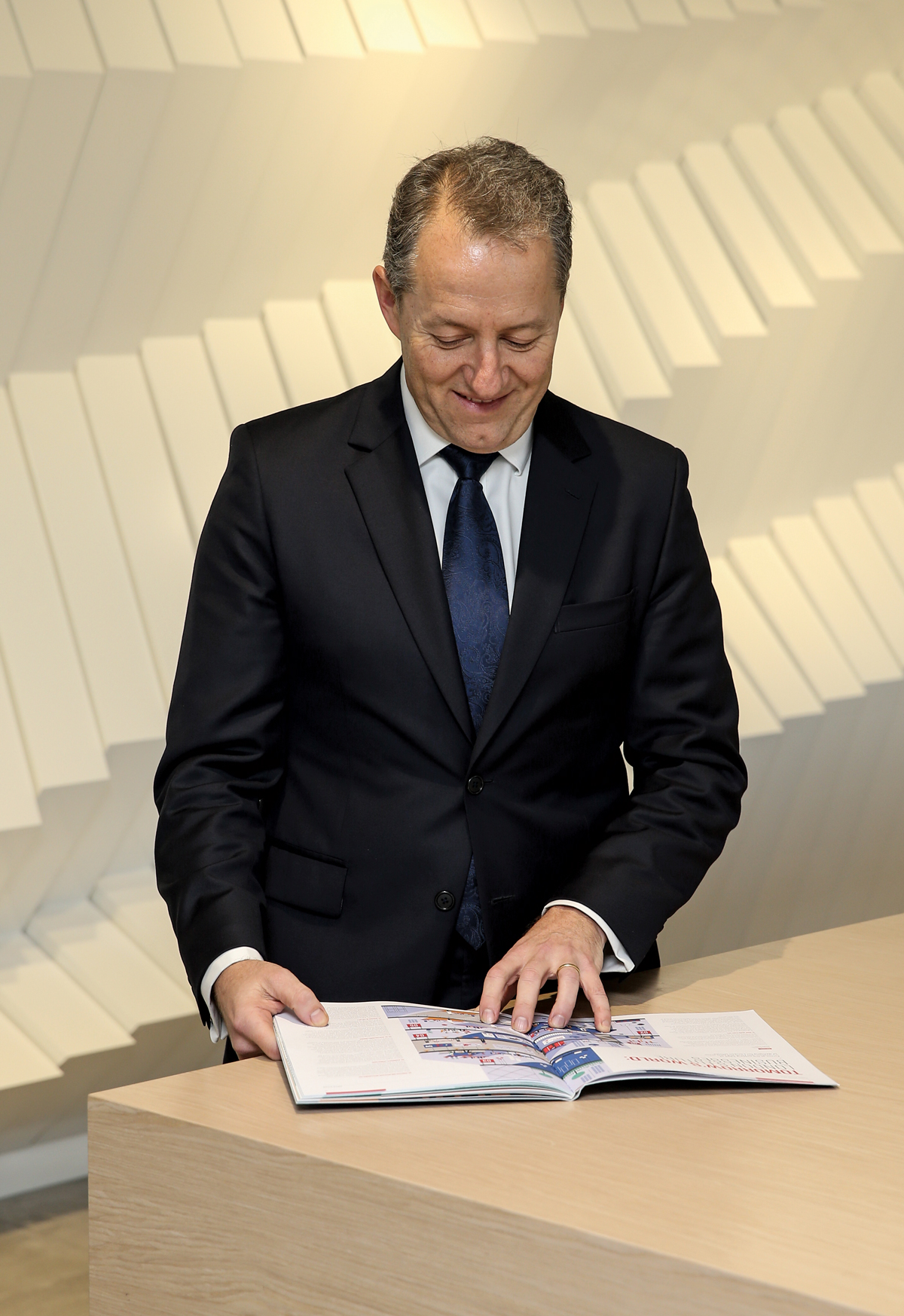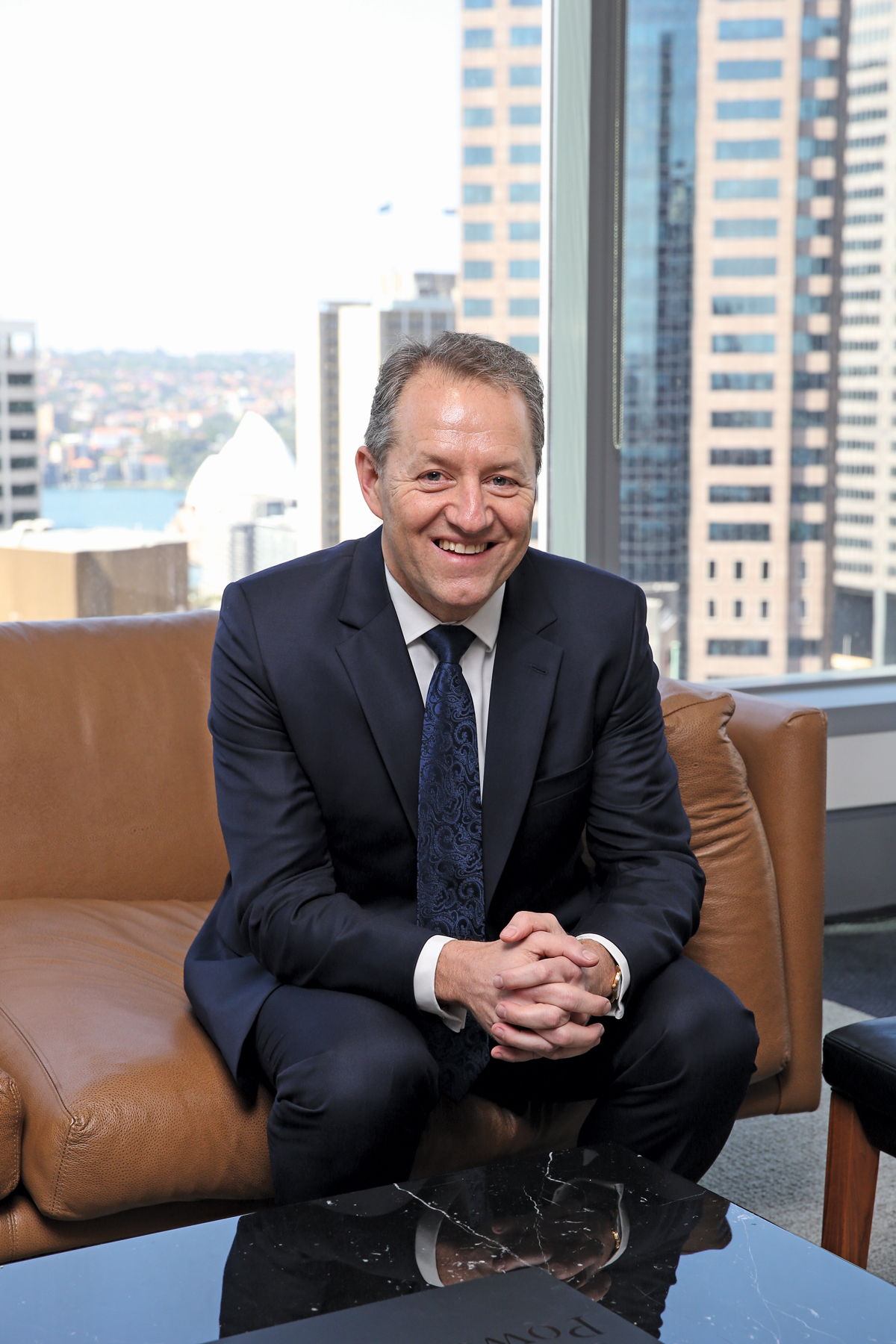Frankly speaking: Kevin Coppel
Navigating volatile market conditions and a variety of cultures is all in a day’s work for Knight Frank’s Kevin Coppel.
When most of us picture the ideal job, we imagine something that takes us travelling: jetsetting around the globe and immersing ourselves in the foreign and unfamiliar. For Knight Frank’s Kevin Coppel, this is no pipedream. "I do have to pinch myself sometimes," he laughs. "I feel privileged to have such a fantastic job."
As Regional Head of Asia–Pacific of the largest independent global property consultancy, Kevin has the enviable job of travelling to some of Asia–Pacific’s most diverse cities. One day he might find himself discussing the potential impact of government reforms with a client in Delhi, and the next he’s just as likely to be sipping tea with a client in Shanghai, chatting about their company’s growth potential.
"Undoubtedly, the thing I like best about my job is travelling around, getting to meet with our staff and clients," says Kevin. "It’s a pleasure, and I think myself very lucky to be able to do that on a regular basis."
Communicating across cultures
Kevin shies away from indulgent descriptions of his position, instead saying, "It’s essentially a professional services role, so the principles are simple: get the best people, do great work for your clients, develop your expertise, and build your profile in the market."

However, it’s not nearly that simple. Overseeing Knight Frank’s Asia–Pacific business requires a vast knowledge of the cultural and political distinctions of each country the business operates in — and, unsurprisingly, there are significant differences. "Our Asia–Pacific region goes from Japan in the north, to India in the west, to Australia and New Zealand in the south. So it’s a big chunk of the world, and there are definitely important differences between cultures. For example, I try to do a lot of town-hall communication meetings when I travel around, and in India there are always loads of questions; people are very vocal and curious," Kevin shares. "In some of the other markets on the eastern side of Asia, people are a lot quieter; they’re not as comfortable speaking out, particularly if English
isn’t their first language."
These cultural differences affect all levels of business operations, and Kevin’s heightened awareness of them highlights his suitability for the role. "Often you have to question whether or not you’re talking about the same thing," he laughs, "because a lot can
get lost in translation."
Globalisation is here to stay
In an increasingly global world, the capacity to navigate these cultural nuances is all the more important. "I don’t think globalisation can be reversed," postulates Kevin. "However, I think there are genuinely some people who are benefiting from it, and there are some people who, understandably, feel like they’ve been left behind. The reality is that there are lots of people who aren’t better off with globalisation, and we need to be aware of that, and be much more genuine about how we meet those concerns."

"Our business is a people business, and I spend a lot of my time on the people, because that’s what we need to get right in order to take the business forward." – Kevin Coppel
Kevin believes that the biggest consequence of globalisation for Knight Frank, and the business community more broadly, is managing uncertainty. "Business doesn’t like uncertainty. And as with any change that occurs as a result of globalisation — whether it be tax arrangements, government support, or infrastructure — people are naturally going to hang back until they understand what’s going on. Uncertainty slows things down because people are unwilling to make investments." This is particularly evident in Asia–Pacific where markets are diverse and patchy. "Property, because you can’t move it, is still very much subject to local market conditions," says Kevin. "For example, China’s tier one cities — Shanghai, Beijing, Guangzhou and Shenzhen — are all very busy. But as you move further away from the tier one cities, things tend to drop off a little bit. A market like Singapore is really challenging at the moment: there’s a lot of supply coming onto the office market, which is putting downward pressure on both prices and rents."
Navigating uncertain waters
Taking us on tour of the region, he goes on to explain that Australia, particularly Sydney and Melbourne, is fairly solid; Indonesia, while still moving steadily, is softer than anticipated; Hong Kong has gone through a bit of a trough, but it’s picking up now; Thailand has been impacted by the coup; and India is volatile. "I think people were hoping that a lot of the reforms that Mr Modi wanted to implement when he became prime minister would be introduced more quickly than they have been," Kevin comments. "Now that they’re coming through, I think people are quite optimistic that they’ll make a big difference."
Despite these various market conditions, Knight Frank’s underlying business growth shows just how proficiently it has managed uncertainty. In 2014, the company’s chairman, Alistair Elliott, forecast Knight Frank would achieve US$1 billion in turnover by 2017 — this at a time when the company had just reported a 5-per-cent increase in turnover to US$630 million in 2013. Now, as the deadline approaches, Kevin attests that the company is very close to achieving that goal. "If exchange rates had stayed more or less where they were, we would be very close to our target," he says. "But because of exchange rate movements — particularly the strength of the dollar, and the downturn in the pound — in US dollar terms we’ll miss that target. The biggest takeaway is that the underlying business is still growing strongly."
What underpins this growth and sets Knight Frank apart from its largest global competitors — such as CBRE, Jones Lang LaSalle, and Colliers — is that it’s not publicly listed. "Being independent means that our owners work in our business every day. We don’t borrow any money, and we don’t have any external equity to worry about, so we can really set our own agenda," explains Kevin.
Bridging commercial and residential
Another of Knight Frank’s points of difference is that it operates across both commercial and residential property markets where a lot of its competitors function in either one domain or the other. "We think there are some really important linkages between those two businesses, particularly if you look from the commercial side. For instance, if we’re selling a building for a client, there will be a lot of institutional groups and other property companies interested in buying it. But there will also be some high net-worth individuals who could equally purchase the building as an investment," says Kevin. "We believe that the linkage between the commercial and residential sides creates additional benefits that we can deliver to our clients."
At the end of the day, however, these big-picture concerns are secondary to what Kevin perceives as paramount to his role and the ongoing success of the firm: recruiting and developing talent.
"Our business is a people business, and I spend a lot of my time on the people, because that’s what we need to get right in order to take the business forward."